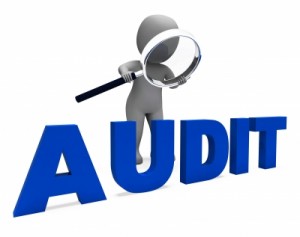
Today I will finish the second half of what we might call the IRS Taxpayer Bill of Rights. They call it the Declaration of Taxpayer Rights. If you want to see the IRS Mission Statement, go back to the earlier two articles on this topic.
I became The IRS Insider based on my personal experience as an income tax auditor. The IRS is a BIG organization. My perspective is limited to the Examination and Appeals Divisions. I have colleagues who help me and help you with the Collections side of the big tax machine.
Remember, every employee of the government is a person, an individual with a job to do. Are they just like you? Does one of you throw your weight around? Can you follow the Golden Rule and still protect yourself? Yes, I believe you can.
The Golden Rule is NOT “He who has the gold, rules.” The Golden Rule is NOT “Do unto others before they do unto you.” The Golden Rule is “Treat others the way you would like to be treated.” You can always catch more flies with honey than you can with vinegar.
The very next right is all about the gold, IRS Collections.
“5. Payment of Only the Correct Amount of Tax. You are responsible for paying only the correct amount of tax due under the law — no more, no less. If you cannot pay all of your tax when it is due, you may be able to make monthly installment payments.
“6. Help With Unresolved Tax Problems. The Taxpayer Advocate Service can help you if you have tried unsuccessfully to resolve a problem with the IRS. Your local Taxpayer Advocate can offer you special help if you have a significant hardship as a result of a tax problem. For more information, call toll free 1-877-777-4778 (1-800-829-4059 for TTY/TDD) or write to he Taxpayer Advocate at the IRS office that last contacted you.
“7. Appeals and Judicial Review. If you disagree with us about the amount of your tax liability or certain collection actions, you have the right to ask the Appeals Office to review your case. You may also ask a court to review your case.
“8. Relief From Certain Penalties and Interest. The IRS will waive penalties when allowed by law if you can show you acted reasonably and in good faith or relied on the incorrect advice of an IRS employee. We will waive interest that is the result of certain errors or delays caused by an IRS employee.”
Often I quote Justice Learned Hand, judge of the US Court of Appeals, who said,
“Anyone may arrange his affairs so that his taxes shall be as low as
possible; he is not bound to choose that pattern which best pays the
treasury. There is not even a patriotic duty to increase one’s taxes.
Over and over again the Courts have said that there is nothing sinister
in so arranging affairs as to keep taxes as low as possible. Everyone
does it, rich and poor alike and all do right, for nobody owes any
public duty to pay more than the law demands.”
 Does the fear of paying too much tax drive you to buy more deductions?
Yes, I said “BUY” deductions. They do cost you money, you know.
Did you know that our government has a FREE deduction for most of us?
That free deduction is called the STANDARD deduction. I say it’s ” free” because you don’t have to spend a dime to claim this one. The amount of your standard deduction does change from year to year and is based on your filing status. Single, Married Filing Jointly, Married Filing Separately, Head-of-Household status – each one has a different standard deduction.
There are various categories of deductions that are allowable on 1040 tax return form Schedule A, Itemized Deductions. These different categories are:
Does the fear of paying too much tax drive you to buy more deductions?
Yes, I said “BUY” deductions. They do cost you money, you know.
Did you know that our government has a FREE deduction for most of us?
That free deduction is called the STANDARD deduction. I say it’s ” free” because you don’t have to spend a dime to claim this one. The amount of your standard deduction does change from year to year and is based on your filing status. Single, Married Filing Jointly, Married Filing Separately, Head-of-Household status – each one has a different standard deduction.
There are various categories of deductions that are allowable on 1040 tax return form Schedule A, Itemized Deductions. These different categories are:



 I’m not talking vinyl music platters…I’m talking receipts. I’m talking about saving your business butt. I’m talking about saving your personal assets.
I was shocked when training with the Internal Revenue Service to find out that you (and me, too), the taxpayer, are considered GUILTY until you PROVE YOURSELF innocent. That was so against what I had grown up with in this great country of America, the land of Superman and Perry Mason.
Do you have what it takes to prove yourself innocent? How do you do that? Well, it’s very simple. It can also be considered boring drudgery, but it is your best defense. It’s called record keeping.
Did you know that thermal paper receipts will fade over time. It is guaranteed! That printed strip of paper showing the date, the place of purchase, the item purchased and the amount you paid is so clear when you first get it. But when you look at it later it has begun to fade. And if you need it to show the IRS one or two years later, it could be completely blank.
So how do you protect yourself with this paper that you need so badly? Put it in a copy machine and make a photocopy. Or scan it into your computer. If you have a paper copy, you will want a file folder or envelope or box to organize your papers. If you use a scanner, you will want to set up a folder on your computer so you know how to go back and find what you need later.
Is this necessary for everyone? Yes. If you own a business or are self-employed you have a business tax return to file. And every person who owns a business must also file a personal tax return.
It is important to keep your business records separate from your personal records. It is important to keep the records for one year separate from the records for another year.
Did you know that the biggest gangster in Chicago during the Roaring Twenties, the 1920s, did not go to jail for moonshining, or drug running, or gambling or prostitution? Elliott Ness of Untouchables fame, was really an IRS Agent. This famous gangster, Al Capone. went to jail for tax evasion. He did not keep track of his income and expenses. Or did he? He just didn’t put all of the right numbers on his tax return.
Years ago, on the 10pm TV news they used to say, “It’s 10 o’clock. Do you know where your children are?” And today I submit to you, It’s the last quarter of this year. Do you know what your numbers are? Do you know where that receipt is?
I’ll be asking my clients for all their numbers come tax season. Get a jump on it. Catch up on what you could have done earlier this year. I’ll be asking you for your true numbers and I want you to be ready. They are your best audit defense.
I’m not talking vinyl music platters…I’m talking receipts. I’m talking about saving your business butt. I’m talking about saving your personal assets.
I was shocked when training with the Internal Revenue Service to find out that you (and me, too), the taxpayer, are considered GUILTY until you PROVE YOURSELF innocent. That was so against what I had grown up with in this great country of America, the land of Superman and Perry Mason.
Do you have what it takes to prove yourself innocent? How do you do that? Well, it’s very simple. It can also be considered boring drudgery, but it is your best defense. It’s called record keeping.
Did you know that thermal paper receipts will fade over time. It is guaranteed! That printed strip of paper showing the date, the place of purchase, the item purchased and the amount you paid is so clear when you first get it. But when you look at it later it has begun to fade. And if you need it to show the IRS one or two years later, it could be completely blank.
So how do you protect yourself with this paper that you need so badly? Put it in a copy machine and make a photocopy. Or scan it into your computer. If you have a paper copy, you will want a file folder or envelope or box to organize your papers. If you use a scanner, you will want to set up a folder on your computer so you know how to go back and find what you need later.
Is this necessary for everyone? Yes. If you own a business or are self-employed you have a business tax return to file. And every person who owns a business must also file a personal tax return.
It is important to keep your business records separate from your personal records. It is important to keep the records for one year separate from the records for another year.
Did you know that the biggest gangster in Chicago during the Roaring Twenties, the 1920s, did not go to jail for moonshining, or drug running, or gambling or prostitution? Elliott Ness of Untouchables fame, was really an IRS Agent. This famous gangster, Al Capone. went to jail for tax evasion. He did not keep track of his income and expenses. Or did he? He just didn’t put all of the right numbers on his tax return.
Years ago, on the 10pm TV news they used to say, “It’s 10 o’clock. Do you know where your children are?” And today I submit to you, It’s the last quarter of this year. Do you know what your numbers are? Do you know where that receipt is?
I’ll be asking my clients for all their numbers come tax season. Get a jump on it. Catch up on what you could have done earlier this year. I’ll be asking you for your true numbers and I want you to be ready. They are your best audit defense. 


 Medical Expenses are not the deduction I want you to have. But medical expenses are deductible if you itemize your deductions. Here are 8 tips direct from the Internal Revenue Service and one more from me.
Medical Expenses are not the deduction I want you to have. But medical expenses are deductible if you itemize your deductions. Here are 8 tips direct from the Internal Revenue Service and one more from me.

